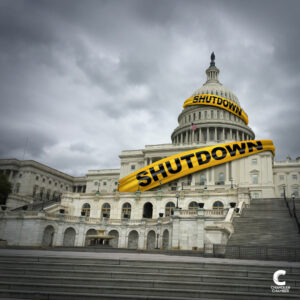Signed into law on July 4, 2025, the One Big Beautiful Bill (OBBB) Act makes major changes to federal tax rules, tariffs, and workforce policies. For Chandler businesses, these updates bring both new opportunities and potential challenges. Preparing early will help you take advantage of the benefits and avoid disruptions.
The Act restores immediate expensing of domestic research and experimental (R&E) costs starting in tax years after December 31, 2024. Some small businesses may also qualify for limited retroactive relief for 2022 and 2023. To benefit, companies will need to clearly separate domestic from foreign R&E costs and work with tax professionals before amending past returns.
For capital investment, the law permanently reinstates 100% bonus depreciation for most qualified property placed in service on or after January 19, 2025. It also increases Section 179 expensing to $2.5 million, with a $4 million phase-out threshold, indexed for inflation. These incentives apply to many types of equipment and certain building improvements like roofs, HVAC systems, and fire or security upgrades.
The state and local tax (SALT) deduction cap increases from $10,000 to $40,000. However, this higher cap is temporary and phases out for households with adjusted gross incomes of roughly $500,000 or more. Owners of pass-through businesses who pay state taxes on personal returns should review their tax structure in light of this change.
The employer-provided childcare credit has been expanded with higher credit amounts, a new version for small businesses, permission for multiple employers to partner on childcare facilities, and annual inflation adjustments. Qualified on-site facilities and contracted care slots remain eligible for the credit.
For payroll, the Act creates new income tax exclusions for certain tip income and qualifying overtime pay. These exclusions are limited by occupation, income thresholds, and documentation requirements. They are not a blanket removal of taxes, and payroll taxes may still apply until the IRS issues more guidance.
Employer student loan repayments are now permanently excluded from employee taxable income, within annual limits, and remain deductible for employers. This change makes student loan assistance a more competitive benefit for attracting and keeping talent.
The law also boosts Qualified Small Business Stock (QSBS) benefits. For stock acquired after July 4, 2025, the gross-assets test increases from $50 million to $75 million, the lifetime exclusion cap rises from $10 million to $15 million, and earlier partial exclusions become available at three, four, and five year holding periods. These changes are especially valuable for startups, investors, and the local innovation economy.
A new 100% deduction is also available for certain qualified production property placed in service after the law’s enactment and before 2031, offering significant savings for manufacturers and related industries.
The One Big Beautiful Bill Act will bring both complexity and opportunity to Chandler’s business community. The Chandler Chamber of Commerce encourages members to review tax strategies, payroll systems, employee benefits, supply chain plans, and workforce readiness now. Acting early will help businesses make the most of new incentives and be prepared for upcoming changes.
Related Articles
Federal Shutdown Brings Business Disruptions and Uncertainty
Category: Advocacy Federal Shutdown Brings Business Disruptions and Uncertainty Author: Chandler Chamber Date: October 8, 2025 Chandler, AZ – With Congress failing to reach a funding agreement by September 30, 2025, the federal government has entered a shutdown. While much of the national discussion is focused on Washington, businesses and communities are already feeling the…
Everything you need to know about federal interest rates
Pile of one-hundred-dollar bills, completely covering a table. Potential interest rate adjusments are back on the table. In an era where federal policy impacts business growth, and Federal Reserve decisions can significantly impact your borrowing costs and overall strategy, it’s important to understand how changes in federal interest rates will affect Arizona businesses, and…


